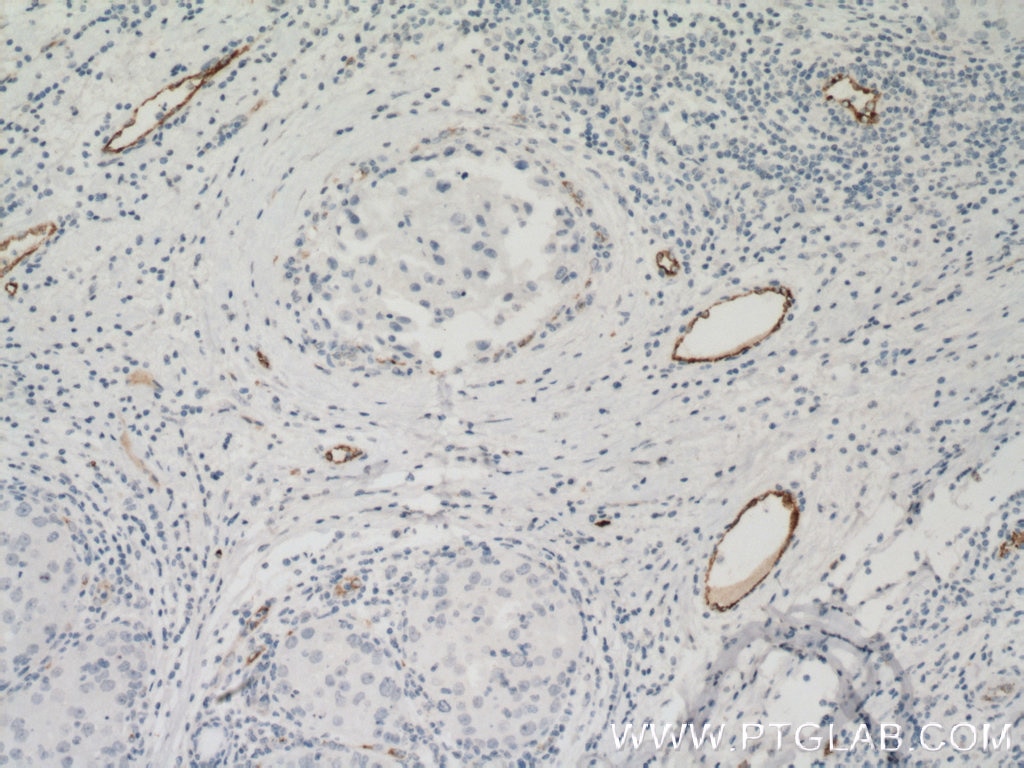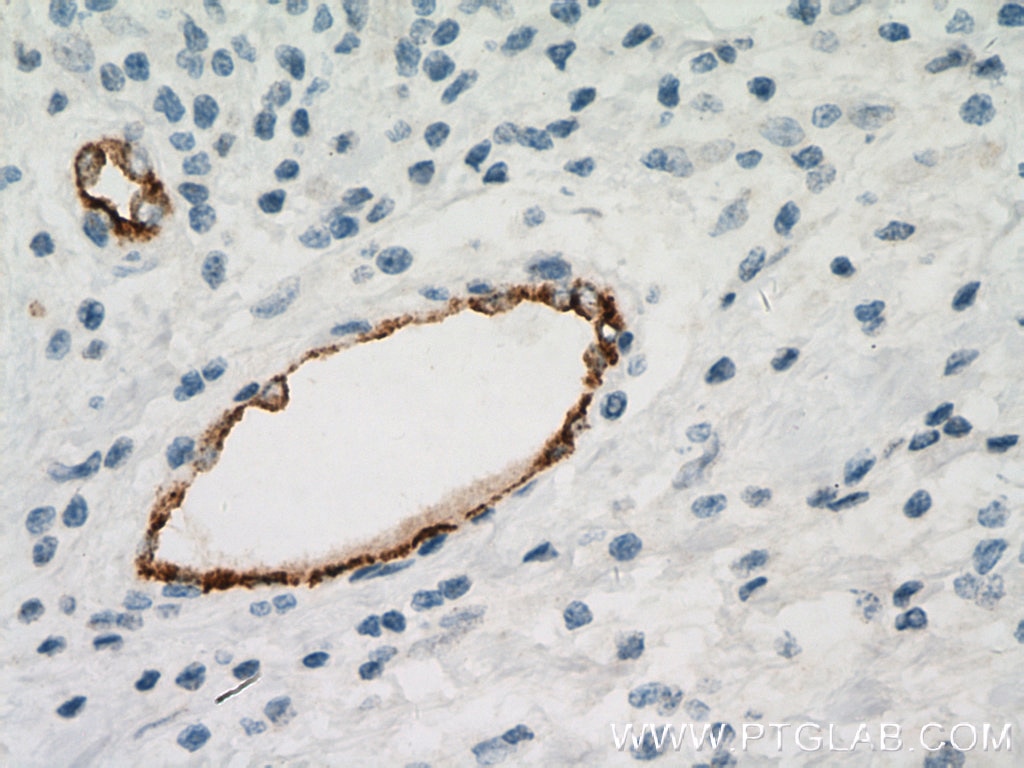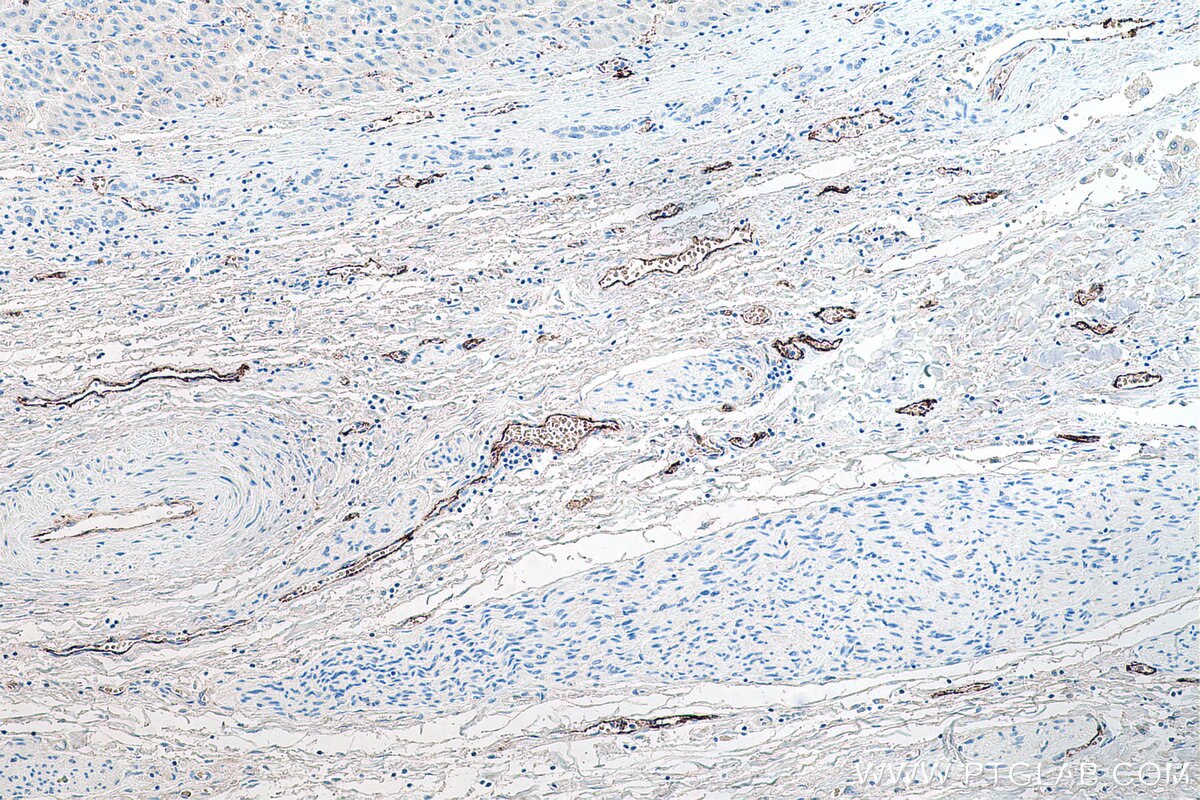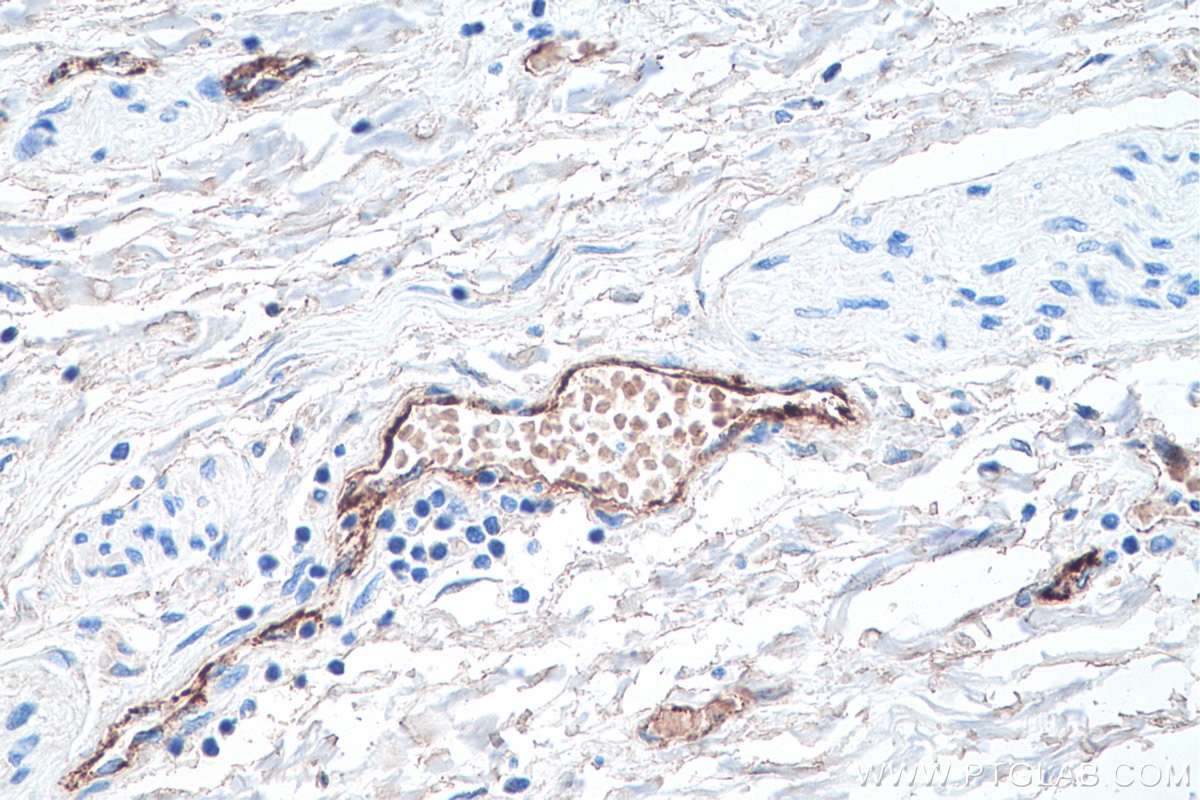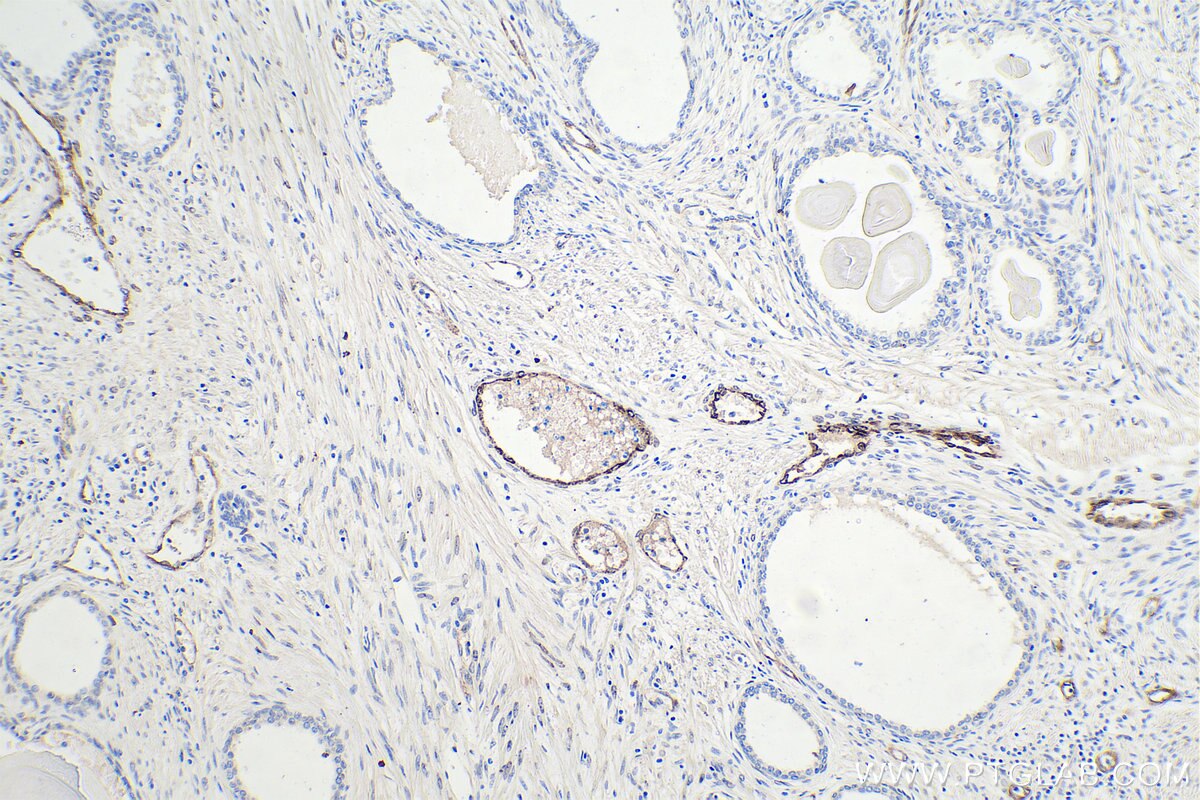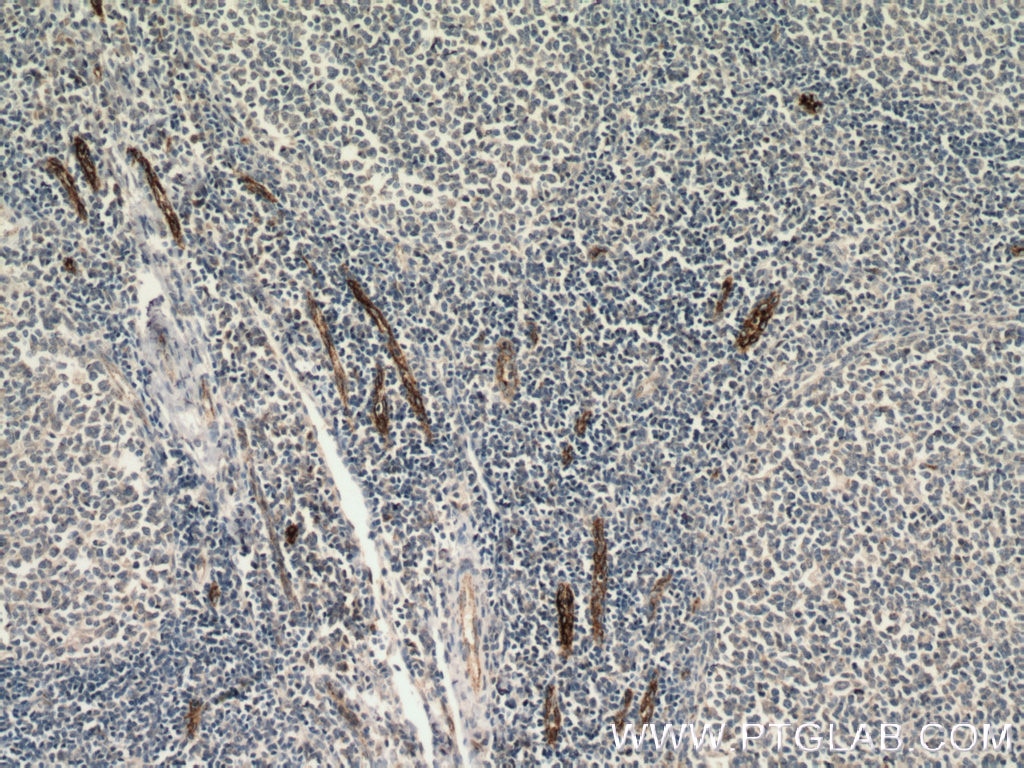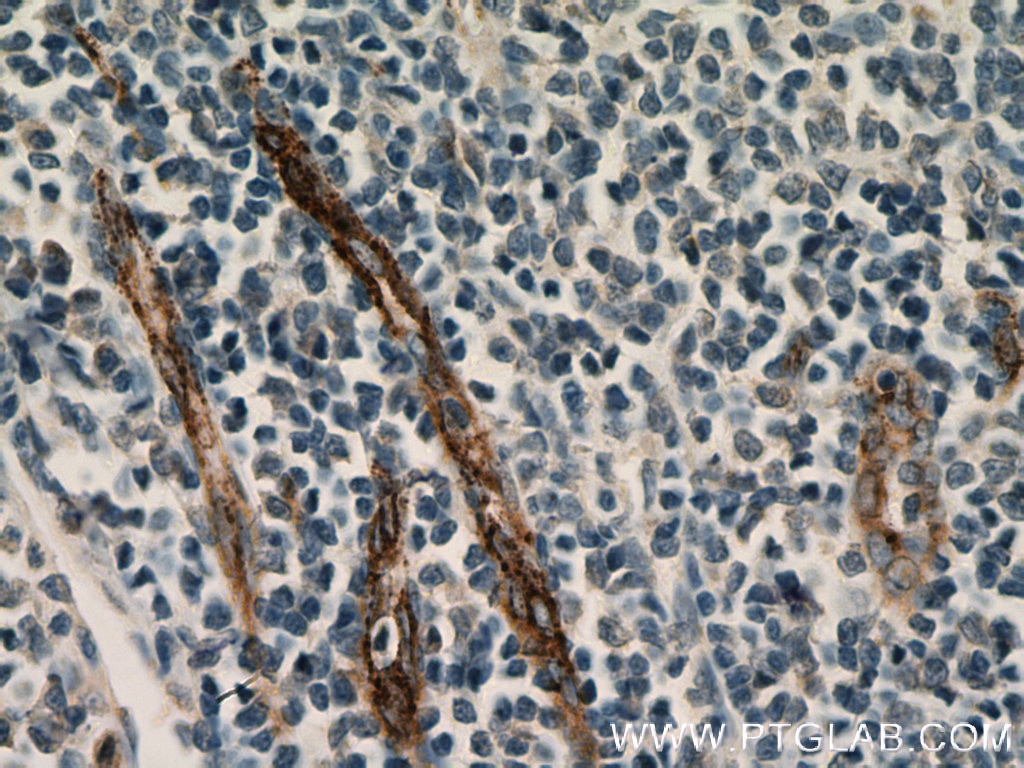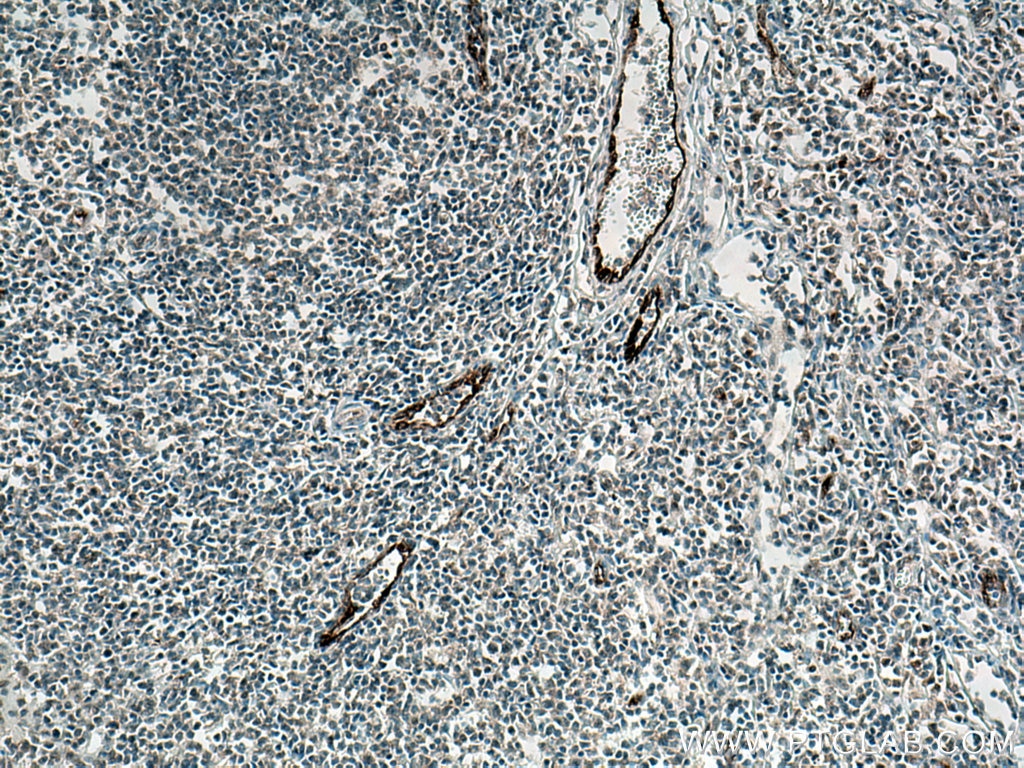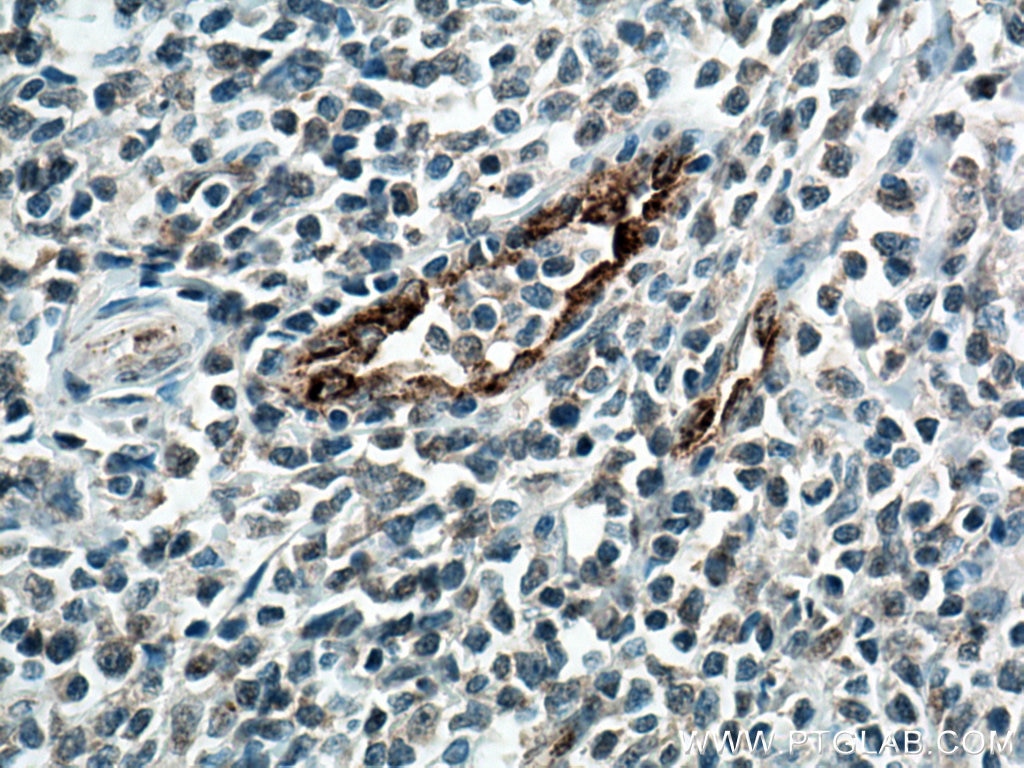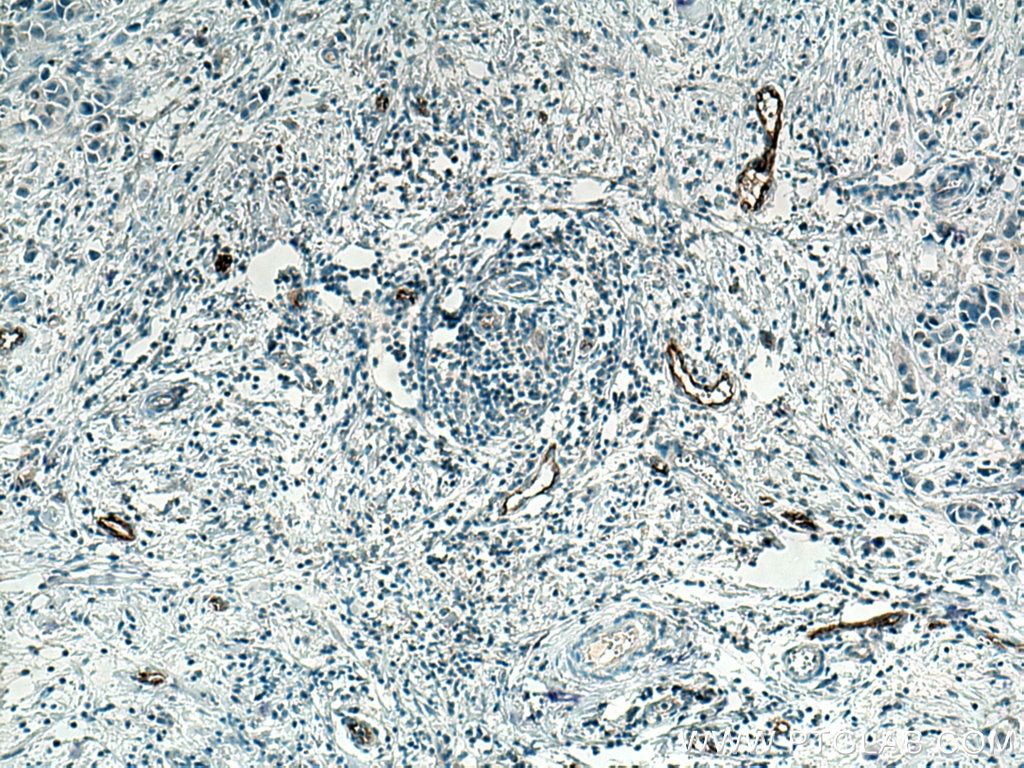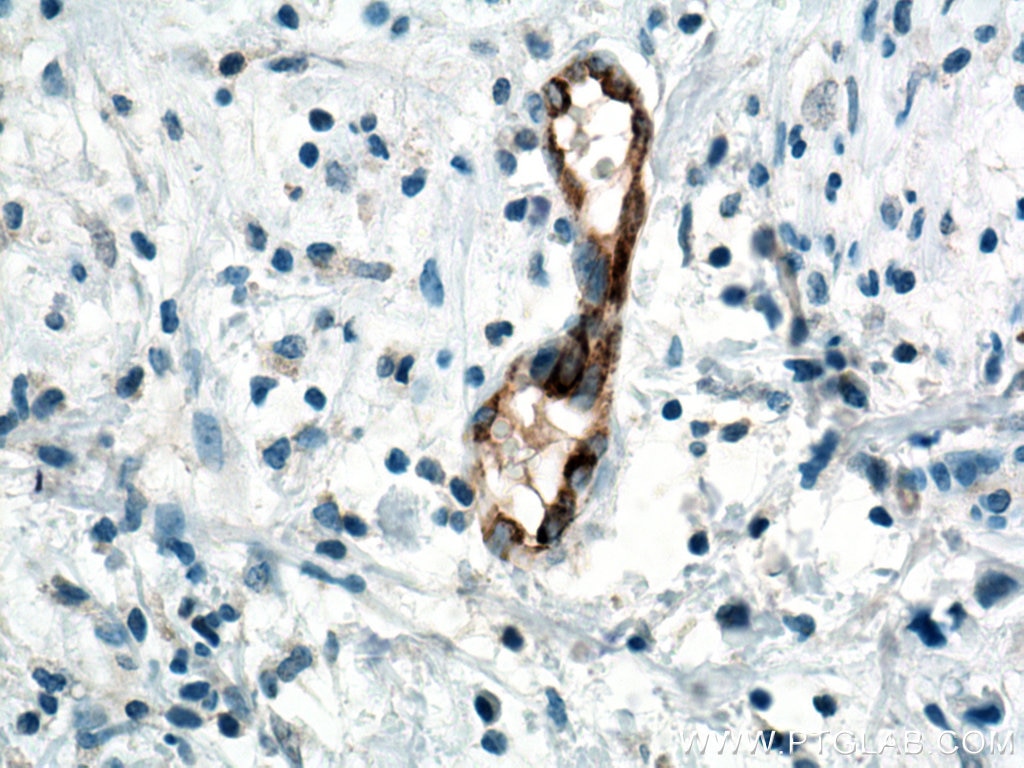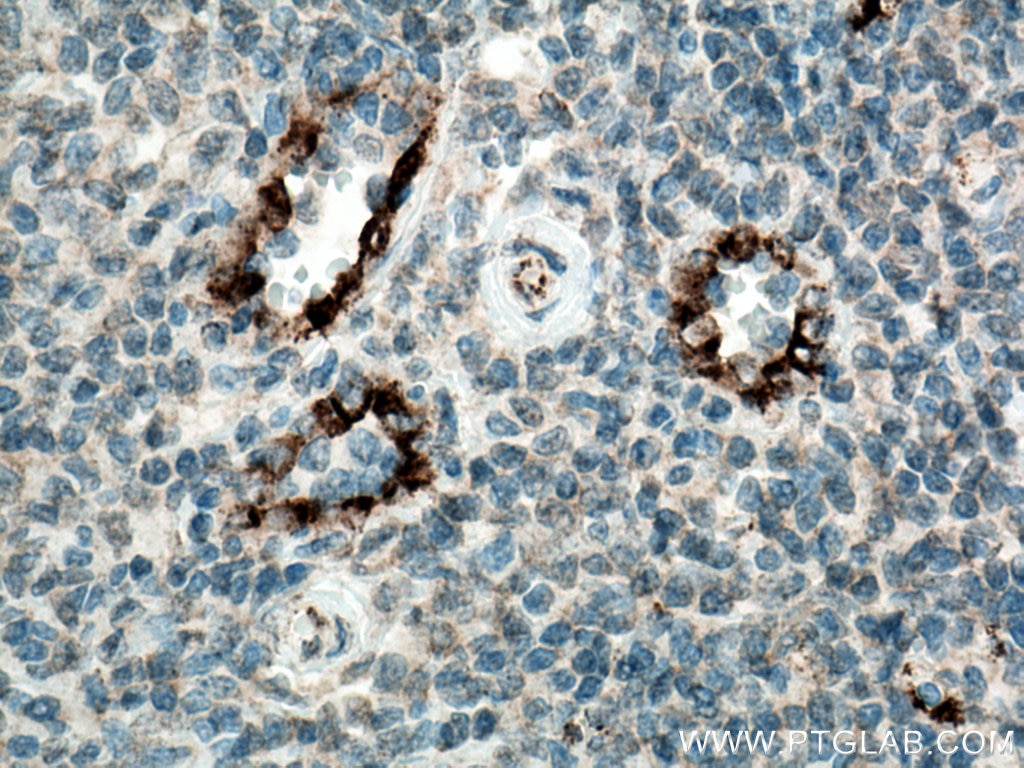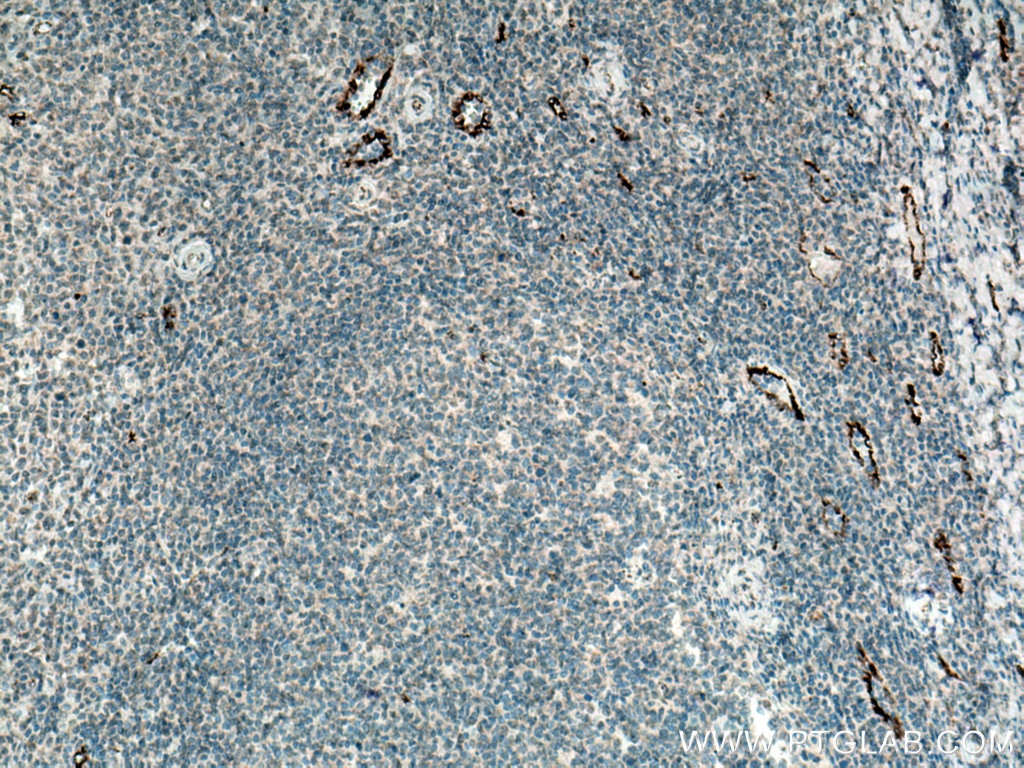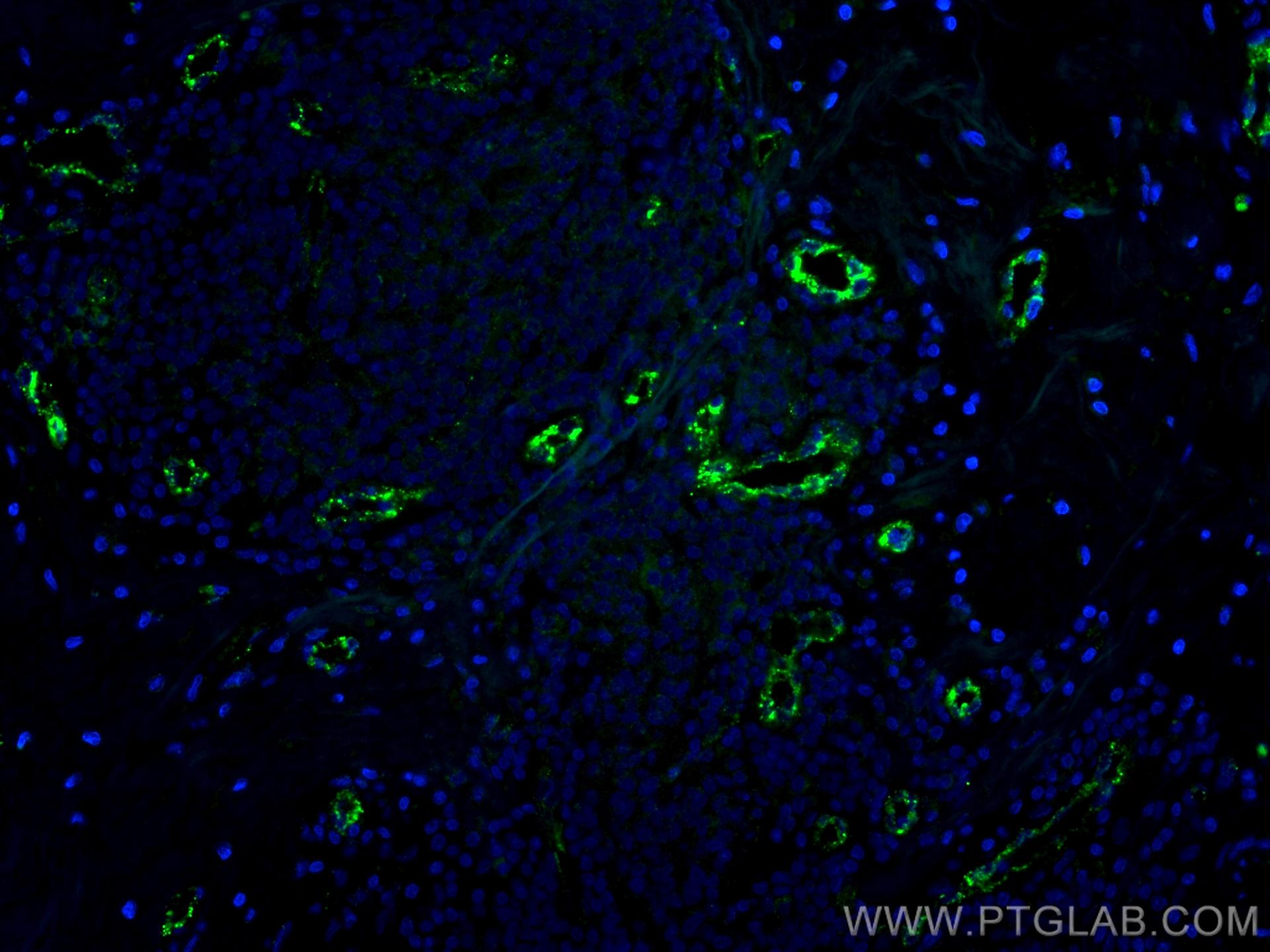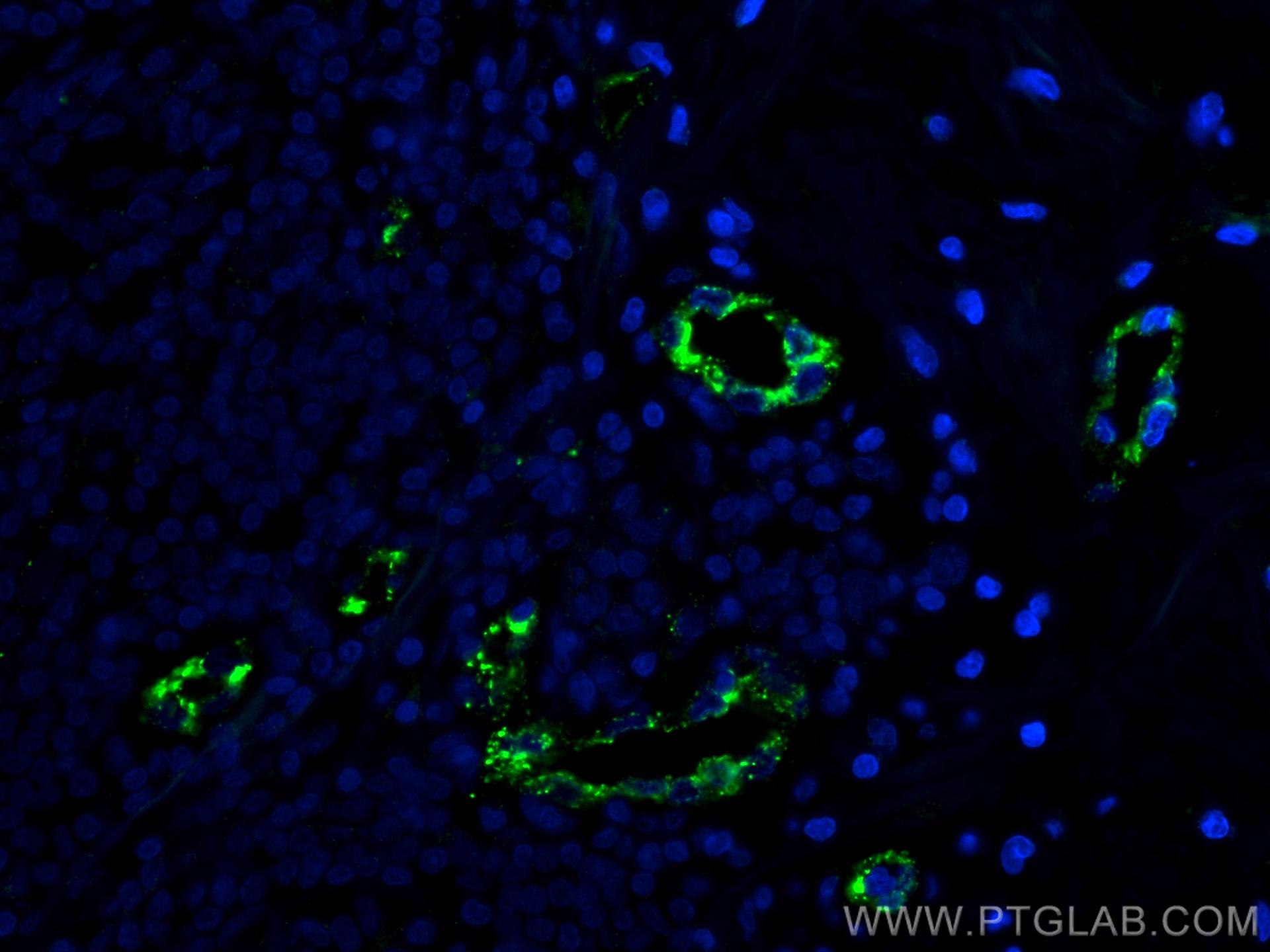Anticorps Monoclonal anti-VWF
VWF Monoclonal Antibody for IHC, IF-P, ELISA
Hôte / Isotype
Mouse / IgG1
Réactivité testée
Humain et plus (2)
Applications
IHC, IF-P, ELISA
Conjugaison
Non conjugué
CloneNo.
3F9F3
N° de cat : 66682-1-Ig
Synonymes
Galerie de données de validation
Applications testées
| Résultats positifs en IHC | tissu de cancer du sein humain, tissu d'amygdalite humain, tissu de cancer de la prostate humain, tissu de cancer du foie humain il est suggéré de démasquer l'antigène avec un tampon de TE buffer pH 9.0; (*) À défaut, 'le démasquage de l'antigène peut être 'effectué avec un tampon citrate pH 6,0. |
| Résultats positifs en IF-P | tissu de cancer du sein humain, |
Dilution recommandée
| Application | Dilution |
|---|---|
| Immunohistochimie (IHC) | IHC : 1:250-1:1000 |
| Immunofluorescence (IF)-P | IF-P : 1:200-1:800 |
| It is recommended that this reagent should be titrated in each testing system to obtain optimal results. | |
| Sample-dependent, check data in validation data gallery | |
Applications publiées
| IHC | See 4 publications below |
| IF | See 14 publications below |
Informations sur le produit
66682-1-Ig cible VWF dans les applications de IHC, IF-P, ELISA et montre une réactivité avec des échantillons Humain
| Réactivité | Humain |
| Réactivité citée | rat, Humain, souris |
| Hôte / Isotype | Mouse / IgG1 |
| Clonalité | Monoclonal |
| Type | Anticorps |
| Immunogène | VWF Protéine recombinante Ag25578 |
| Nom complet | von Willebrand factor |
| Symbole du gène | VWF |
| Identification du gène (NCBI) | 7450 |
| Conjugaison | Non conjugué |
| Forme | Liquide |
| Méthode de purification | Purification par protéine G |
| Tampon de stockage | PBS with 0.02% sodium azide and 50% glycerol |
| Conditions de stockage | Stocker à -20°C. Stable pendant un an après l'expédition. L'aliquotage n'est pas nécessaire pour le stockage à -20oC Les 20ul contiennent 0,1% de BSA. |
Informations générales
Von Willebrand factor (VWF) is a large multimeric glycoprotein found in blood plasma involved in hemostasis following vascular injury. Due to the multimeric nature of VWF, it can range in size from 500 to 20,000 kDa due to the differences in the number of subunits comprising the protein. Each subunit is approximately 250 kDa (PMID: 9759493). The biosynthesis of VWF in vivo is limited to endothelial cells (PMID: 4209883) and megakaryocytes (PMID: 2413071). VWF synthesized in endothelial cells is either released directly into the plasma via 27186a secretory pathway, or tubulized and stored in organelles unique to this cell type called Weibel-Palade bodies (PMID: 16459301). Whereas VWF synthesized in megakaryocytes is stored in the alpha granules of platelets (PMID: 2046403). The primary function of VWF is as an adhesive plasma glycoprotein, particularly factor VIII; an essential blood-clotting protein (PMID: 6982084). VWF is also important in platelet adhesion to wound sites by binding specifically to type I and type III collagen (PMID: 11098050), with larger VWF multimers being most effective (PMID: 24448155).
Protocole
| Product Specific Protocols | |
|---|---|
| IHC protocol for VWF antibody 66682-1-Ig | Download protocol |
| IF protocol for VWF antibody 66682-1-Ig | Download protocol |
| Standard Protocols | |
|---|---|
| Click here to view our Standard Protocols |
Publications
| Species | Application | Title |
|---|---|---|
J Cell Mol Med Impact of chronic intermittent hypoxia on the long non-coding RNA and mRNA expression profiles in myocardial infarction. | ||
Int J Stem Cells Integrin α4 Positive Subpopulation in Adipose Derived Stem Cells Effectively Reduces Infarct Size through Enhanced Engraftment into Myocardial Infarction | ||
Exp Ther Med Biological activity of a vascular endothelial cell-hydroxyapatite orbital implant complex: An experimental study. | ||
Cell Death Dis Association of N6-methyladenine DNA with plaque progression in atherosclerosis via myocardial infarction-associated transcripts. | ||
Inflammation Low-Shear Stress Promotes Atherosclerosis via Inducing Endothelial Cell Pyroptosis Mediated by IKKε/STAT1/NLRP3 Pathway | ||
Int J Biol Sci Metallothionein 3 Potentiates Pulmonary Artery Smooth Muscle Cell Proliferation by Promoting Zinc-MTF1-ATG5 Axis-mediated Autophagosome Formation |
Avis
The reviews below have been submitted by verified Proteintech customers who received an incentive for providing their feedback.
FH Kenzo (Verified Customer) (01-05-2024) | This monoclonal antibody worked well for immunohistochemistry on human heart sections to stain blood vessels.
|
